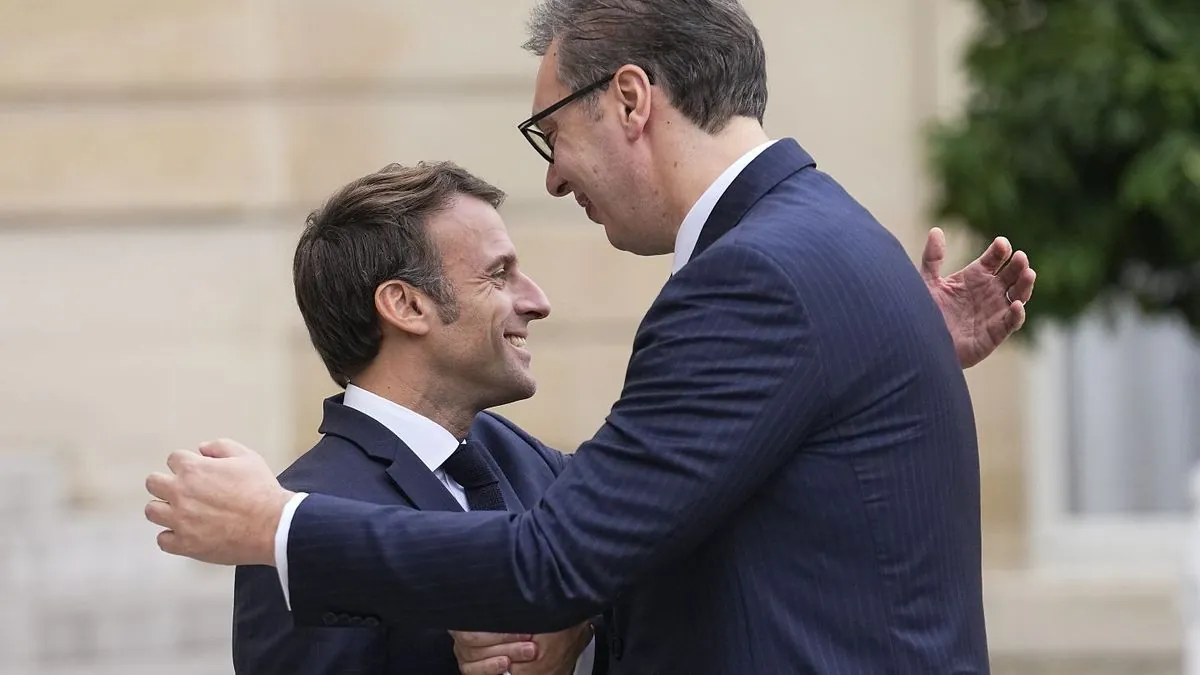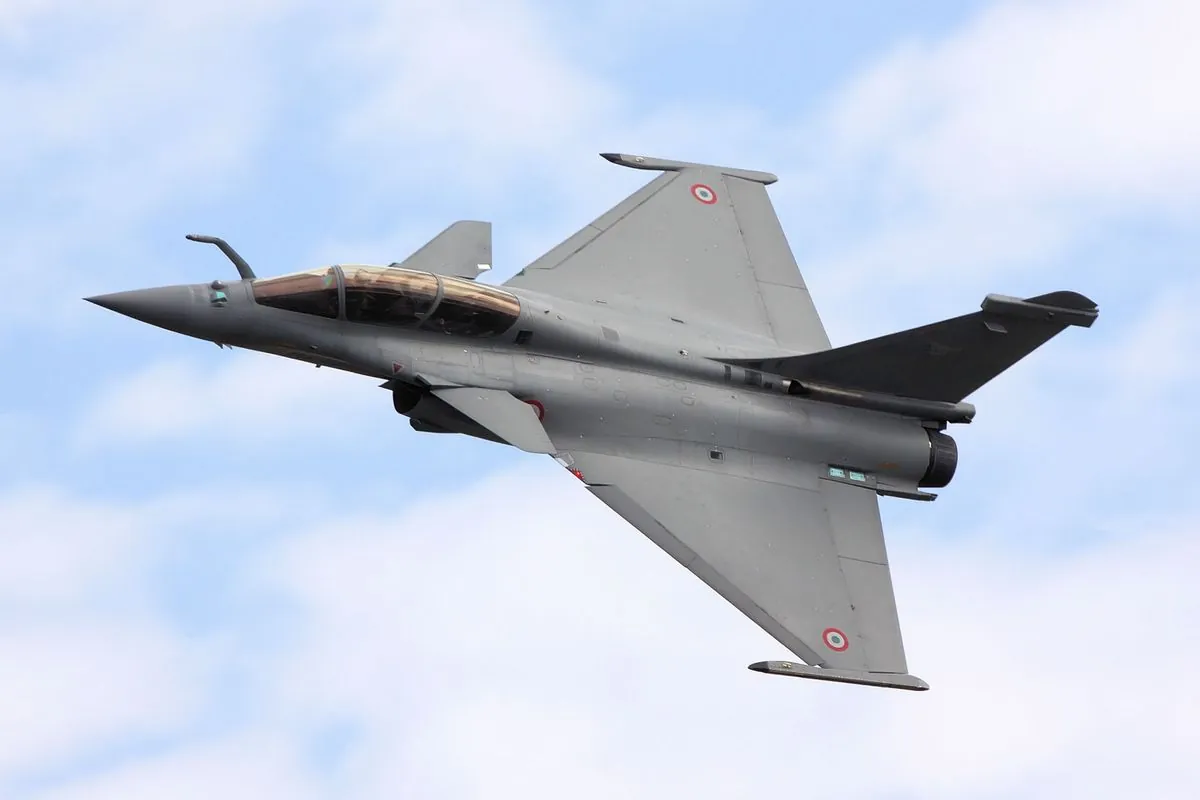Macron's Serbia Visit: Rafale Jets Deal and EU Integration Push
French President Macron visits Serbia, focusing on potential Rafale fighter jet sale and EU integration. The visit aims to strengthen ties amid Serbia's complex geopolitical position.

French President Emmanuel Macron embarks on a two-day state visit to Serbia, with a primary focus on a potential 3 billion euro ($3.3 billion) deal for 12 Rafale multi-purpose fighter jets. This visit occurs against the backdrop of Serbia's ongoing close ties with Russia, despite the latter's invasion of Ukraine.
Macron is scheduled to meet with Serbian President Aleksandar Vučić in Belgrade. The potential Rafale deal is seen as part of a broader strategy to bring Serbia closer to the European Union. Serbia's consideration of these French-made jets began over three years ago, following neighboring Croatia's purchase of 12 used Rafales.

The acquisition of Rafale jets would significantly modernize Serbia's air force, currently relying on Soviet-era MiG-29 fighters and aging Yugoslav aircraft. This modernization effort has raised concerns among neighboring countries, given the region's history of conflict during the Yugoslav wars of the 1990s.
In a letter published in Serbian media, Macron addressed the Serbian public, encouraging the country's EU integration while acknowledging challenges in the accession process. He emphasized the mutual benefits of Serbia joining the EU and the importance of a strong, democratic Serbia within the bloc.
"The European Union and its nations need to have a strong and democratic Serbia in their ranks, and Serbia needs a strong and sovereign European Union to defend and promote its interests with respect of its identity."
Macron also cautioned against Serbia's "balancing game" between world powers, particularly in light of Russia's actions in Ukraine. He stressed that Serbia's interests and identity would be best protected within the EU framework.
The visit's agenda includes discussions on regional tensions, particularly regarding Kosovo, which declared independence from Serbia in 2008. Macron is also set to visit an economic forum on artificial intelligence in Novi Sad and explore potential cooperation with French energy provider EDF in nuclear power plant technology.
This high-profile visit underscores the complex geopolitical landscape of the Balkans and the ongoing efforts to integrate the region into the European Union. As Serbia continues its EU membership bid, initiated in 2009, it faces challenges in implementing necessary reforms, particularly in the areas of rule of law and democratic processes.
The potential Rafale deal has raised some concerns, particularly regarding the prevention of technology transfer to Russia. French officials have indicated that the contract would include clauses setting a framework for the use of such advanced military equipment.
As the visit unfolds, it remains to be seen how these discussions will impact Serbia's relationships with both the EU and Russia, and what concrete steps may emerge towards Serbia's European integration.


































